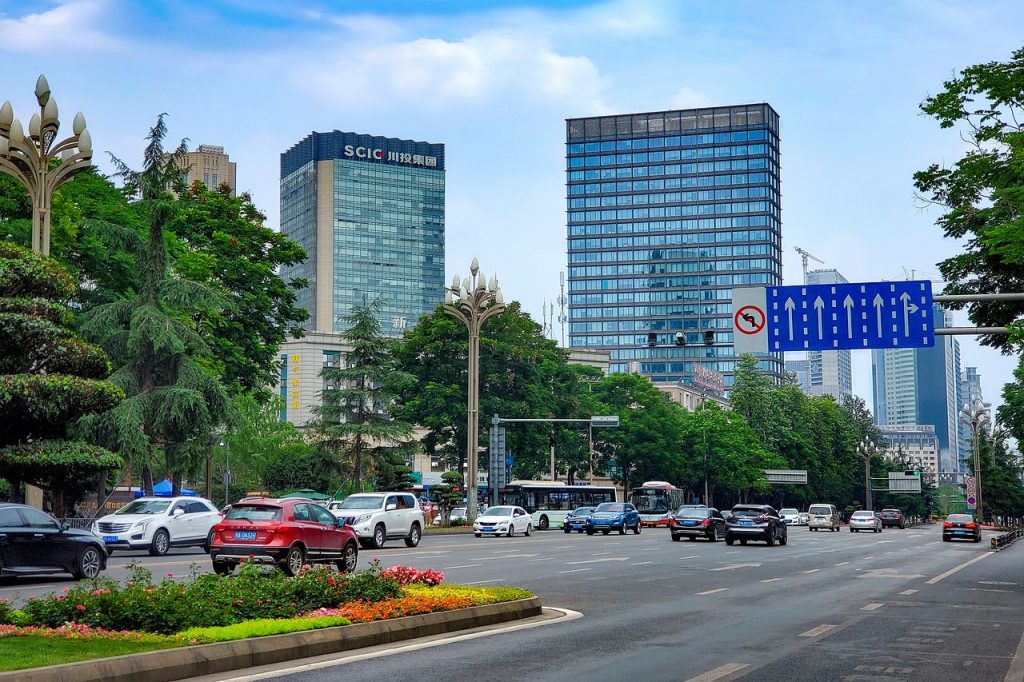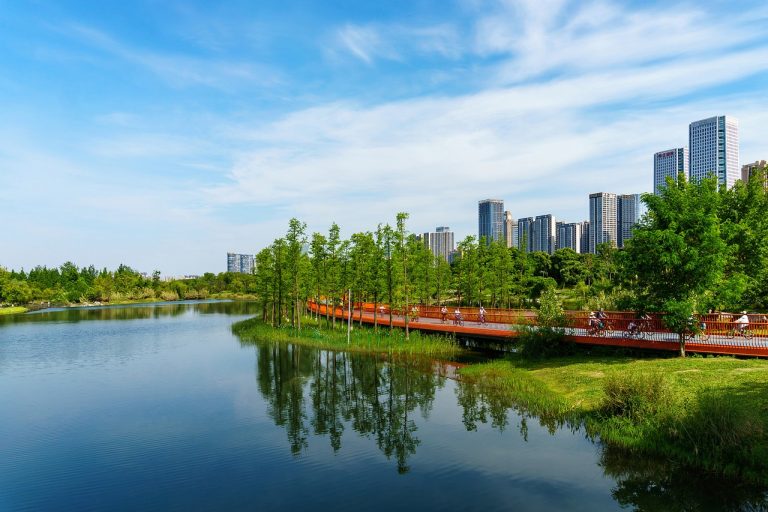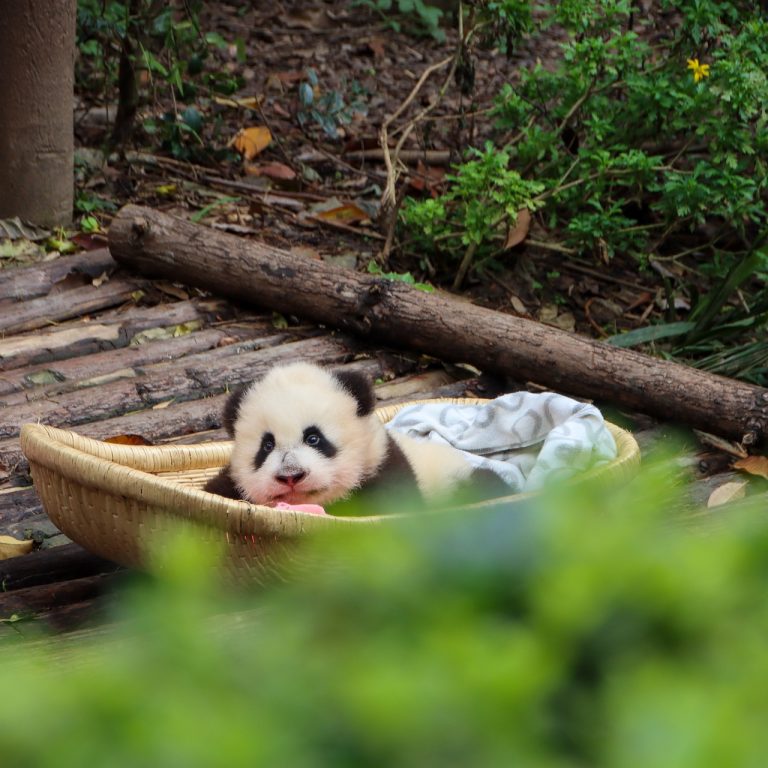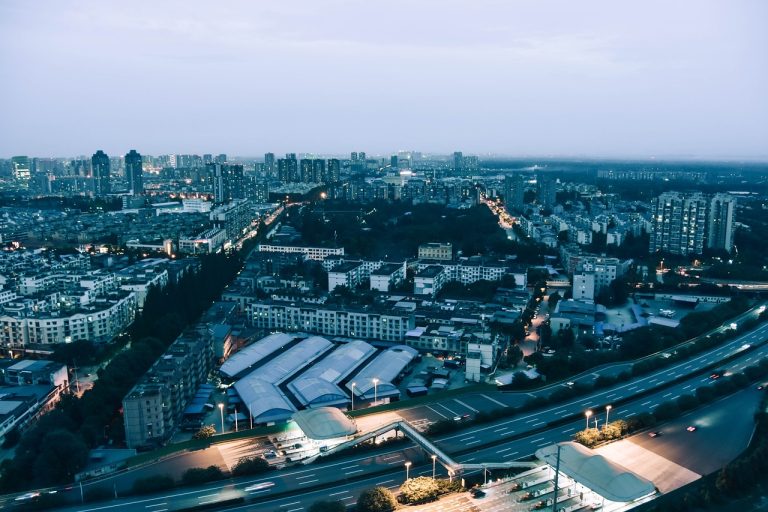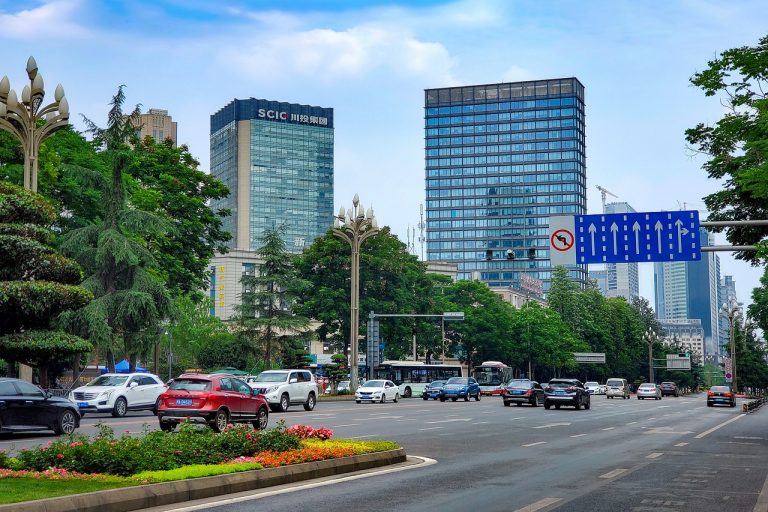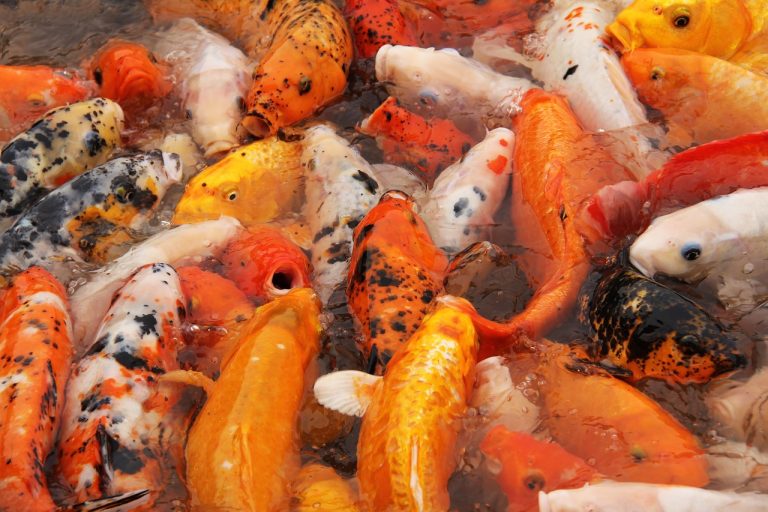Chengdu China Video
Chengdu, the capital city of Sichuan Province in China, is known for its rich cultural heritage and vibrant traditional festivals and celebrations. These events offer a glimpse into the unique traditions, customs, and history of the region. From colorful parades to ancient rituals, Chengdu’s traditional festivals are a sight to behold. In this article, we will explore ten of the most prominent festivals and celebrations in Chengdu, each with its own distinct theme and significance.
Chengdu China Image 1:
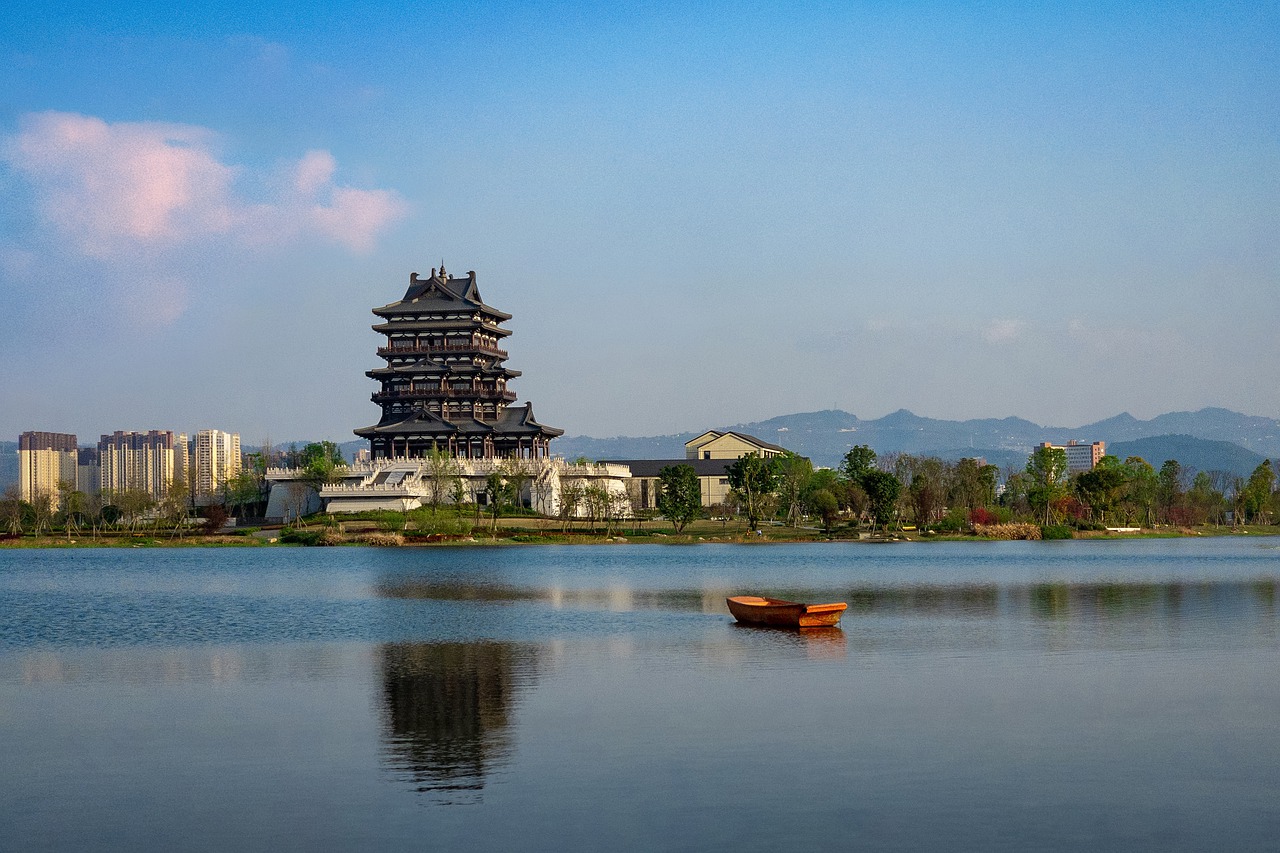
1. Spring Festival
The Spring Festival, also known as Chinese New Year, is the most important traditional festival in China. In Chengdu, the city comes alive with vibrant decorations, bustling markets, and lively performances. Families gather to celebrate the arrival of the new year, exchange gifts, and enjoy sumptuous feasts. The festival is marked by traditional activities such as dragon and lion dances, setting off fireworks, and visiting temples to pray for good fortune.
- Dragon and Lion Dances: These traditional performances are believed to bring good luck and drive away evil spirits. Dancers dressed as dragons or lions parade through the streets, accompanied by the rhythmic beats of drums and cymbals.
- Fireworks: Fireworks are set off during the Spring Festival to ward off evil spirits and bring good luck for the coming year. The night sky is illuminated with dazzling displays of lights and colors.
- Temple Visits: Many people visit temples during the Spring Festival to pray for good fortune and blessings. Wenshu Monastery, one of the oldest and largest Buddhist temples in Chengdu, is a popular destination for worshippers.
The Dragon and Lion Dances are an essential part of the Spring Festival celebrations in Chengdu. The colorful costumes and energetic performances attract locals and tourists alike.
The fireworks display during the Spring Festival in Chengdu is a mesmerizing spectacle. The cityscape is transformed into a magical realm as fireworks light up the sky, creating a festive atmosphere.
Wenshu Monastery attracts a large number of visitors during the Spring Festival. Devotees offer incense, make wishes, and seek guidance from the resident monks, creating a serene and spiritual ambiance.
Chengdu China Image 2:
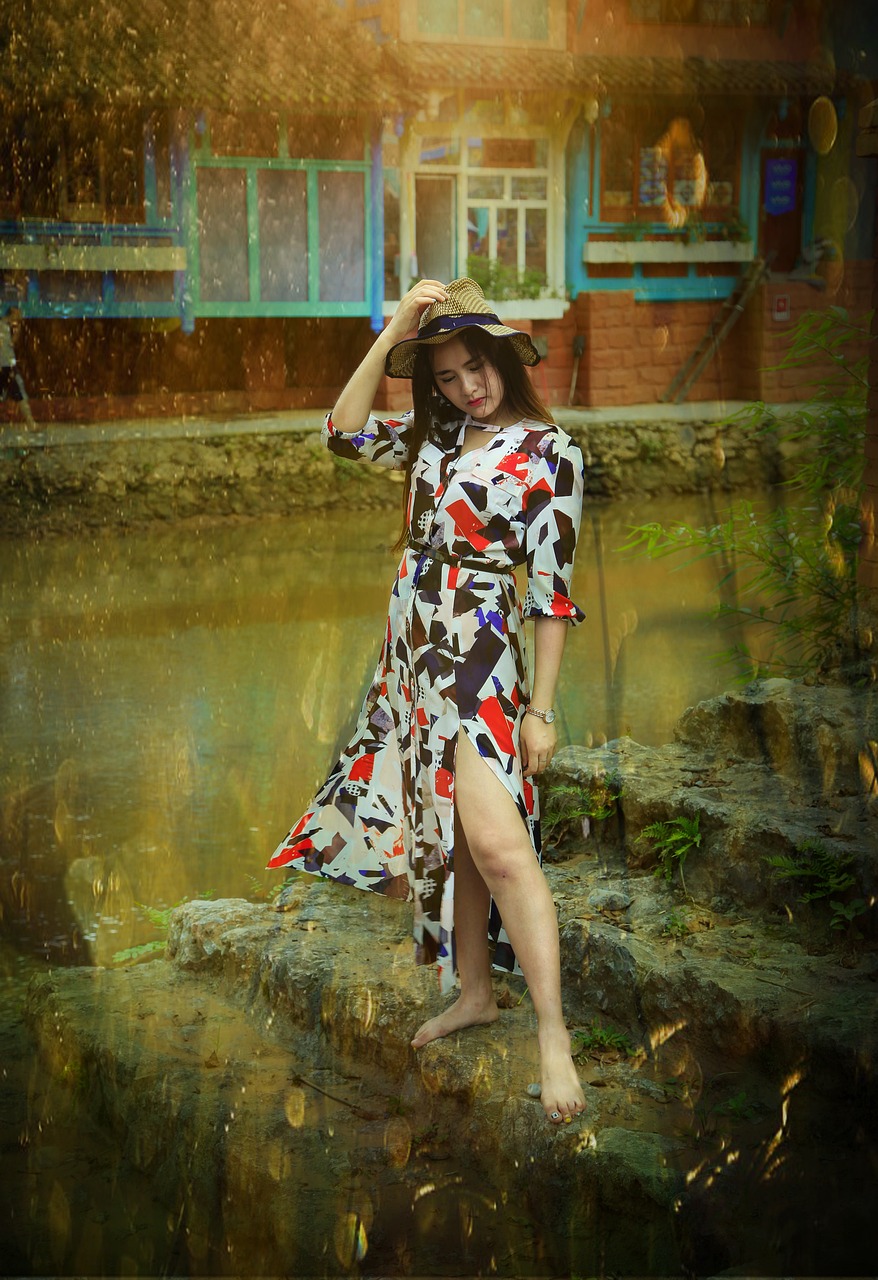
2. Lantern Festival
The Lantern Festival marks the end of the Spring Festival celebrations and is celebrated on the fifteenth day of the first lunar month. Chengdu hosts various lantern displays and cultural performances during this festival. Streets and parks are adorned with beautifully crafted lanterns, creating a magical atmosphere.
- Lantern Displays: Intricate lanterns of various shapes and sizes are exhibited throughout the city. These lanterns depict scenes from Chinese mythology, folklore, and historical events.
- Lion Dance: The Lantern Festival is also accompanied by lion dance performances. Dancers dressed as lions mimic the movements of the animal, symbolizing good luck and prosperity.
- Traditional Games: Various traditional games are organized during the Lantern Festival, such as guessing lantern riddles, lantern-making competitions, and dragon boat races.
Chengdu’s lantern displays are a visual treat for visitors. The skillfully designed lanterns showcase the artistic prowess of local craftsmen and highlight the cultural heritage of the region.
Lion dance performances during the Lantern Festival in Chengdu are a blend of acrobatics, martial arts, and traditional music. The vibrant costumes and dynamic routines captivate audiences and add to the festive spirit.
Participating in traditional games during the Lantern Festival is a popular pastime for both locals and tourists. These activities provide an interactive and engaging experience, allowing people to immerse themselves in the festive atmosphere.
Chengdu China Image 3:
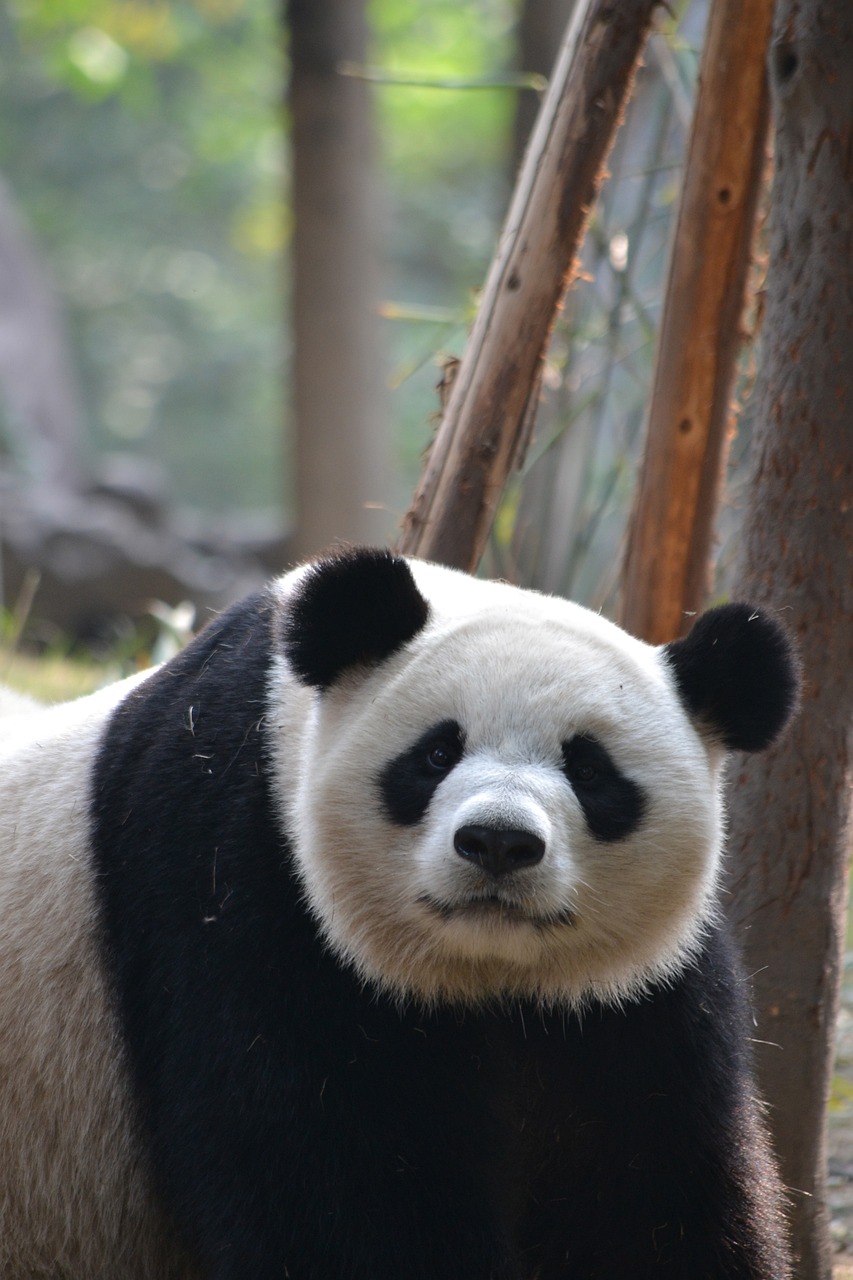
3. Qingming Festival
The Qingming Festival, also known as Tomb-Sweeping Day, is a traditional Chinese festival that takes place on April 4th or 5th each year. It is a time for people to honor their ancestors by visiting their graves, tidying up the burial sites, and paying respects.
- Tomb-Sweeping: Families visit the graves of their ancestors to clean the tombstones, offer food and drinks, and burn incense as a sign of respect. This ritual is believed to ensure the well-being and blessings of deceased loved ones.
- Outdoor Activities: The Qingming Festival is also a time for people to enjoy the arrival of spring and appreciate nature. Many families go for outings, fly kites, and have picnics in parks or countryside areas.
- Traditional Food: During the Qingming Festival, people indulge in traditional food items such as Qingming cake, peach-shaped pastries, and green dumplings made from glutinous rice.
Tomb-sweeping is an important tradition during the Qingming Festival in Chengdu. People take this opportunity to reconnect with their roots, remember their ancestors, and reflect on the cycle of life.
Chengdu’s parks and scenic spots are popular destinations for outdoor activities during the Qingming Festival. Families and friends gather to enjoy the blooming flowers, lush greenery, and pleasant weather, creating joyful memories.
Sampling traditional food is an integral part of the Qingming Festival experience in Chengdu. These delicacies are not only delicious but also carry cultural significance, as they are closely associated with the festival’s traditions and customs.
4. Dragon Boat Festival
The Dragon Boat Festival, also known as Duanwu Festival, is celebrated on the fifth day of the fifth lunar month. It commemorates the life and death of the famous poet and statesman Qu Yuan. Chengdu embraces this festival with dragon boat races, zongzi (sticky rice dumplings) making, and other cultural activities.
- Dragon Boat Races: Dragon boat races are the highlight of the Dragon Boat Festival. Teams of rowers paddle vigorously to the beat of drums, competing to reach the finish line first.
- Zongzi Making: Zongzi, pyramid-shaped sticky rice dumplings wrapped in bamboo leaves, are a traditional food item associated with the Dragon Boat Festival. Families come together to make zongzi and share them with loved ones.
- Wearing Silk Threads: To ward off evil spirits and diseases, people wear silk threads around their wrists during the Dragon Boat Festival. These threads are believed to possess protective properties.
Chengdu’s rivers and lakes become a stage for thrilling dragon boat races during the festival. The synchronized rowing, rhythmic drumming, and cheering spectators create an electrifying atmosphere.
In Chengdu, zongzi making is a cherished tradition during the Dragon Boat Festival. Families gather in their kitchens, filling the air with the aroma of glutinous rice, fillings like pork, beans, or nuts, and fragrant bamboo leaves.
Participating in the silk thread tradition is a common sight during the Dragon Boat Festival in Chengdu. The colorful threads add a festive touch to people’s attire and symbolize good luck and blessings.
5. Mid-Autumn Festival
The Mid-Autumn Festival, also known as the Moon Festival, is celebrated on the fifteenth day of the eighth lunar month. It is a time for family reunions, moon gazing, and feasting on mooncakes. Chengdu embraces the festival with various cultural performances and lantern displays.
- Mooncake Exchange: Mooncakes, round pastries filled with sweet or savory fillings, are a symbolic food item during the Mid-Autumn Festival. Families exchange mooncakes as a gesture of love and unity.
- Moon Gazing: Families gather in parks or open spaces to admire the full moon, which is believed to be the brightest and fullest on this night. Lanterns are lit, creating a magical ambiance.
- Cultural Performances: Chengdu hosts various cultural performances during the Mid-Autumn Festival, including traditional music, dance, and theater shows.
Mooncake exchange is a common tradition in Chengdu during the Mid-Autumn Festival. The beautifully packaged mooncakes are not only delicious but also carry deep cultural symbolism, representing unity and togetherness.
Moon gazing is a cherished activity during the Mid-Autumn Festival in Chengdu. The serene atmosphere, illuminated by the soft glow of lanterns, provides the perfect backdrop for families to bond and appreciate the beauty of the moon.
Attending cultural performances is a popular way to celebrate the Mid-Autumn Festival in Chengdu. These shows showcase the city’s artistic talent and cultural heritage, captivating audiences with their beauty and grace.
6. Sichuan Opera Festival
The Sichuan Opera Festival is an annual event that celebrates the rich tradition of Sichuan opera, one of the oldest and most distinctive forms of Chinese opera. Chengdu serves as the hub for this festival, attracting opera enthusiasts from all over the world.
- Opera Performances: The Sichuan Opera Festival showcases a wide range of performances, including face-changing, fire-spitting, acrobatics, singing, and dancing.
- Backstage Tours: Visitors can take backstage tours to learn about the intricate preparations, makeup techniques, and costume design involved in Sichuan opera.
- Workshops and Seminars: The festival also organizes workshops and seminars where participants can learn about the history, techniques, and cultural significance of Sichuan opera.
Chengdu’s theaters come alive with mesmerizing Sichuan opera performances during the festival. The elaborate costumes, intricate makeup, and captivating storytelling transport the audience to a world of ancient Chinese legends and folklore.
Backstage tours offer a behind-the-scenes glimpse into the world of Sichuan opera. Visitors can witness the meticulous process of transforming actors into vibrant characters and gain a deeper appreciation for the art form.
Workshops and seminars provide a platform for artists, scholars, and enthusiasts to share their knowledge and passion for Sichuan opera. Participants can engage in interactive sessions, hone their skills, and deepen their understanding of this traditional art form.
7. Chengdu International Panda Lantern Festival
The Chengdu International Panda Lantern Festival is a unique event that combines traditional lantern displays with the adorable giant pandas, which are native to the region. This festival attracts visitors from around the world to witness the magical panda-themed lanterns.
- Panda Lantern Displays: Elaborate lanterns in the shape of pandas are showcased throughout the festival venue. These lanterns depict pandas engaged in various activities, such as playing, eating bamboo, and climbing trees.
- Nighttime Light Show: The festival features a mesmerizing nighttime light show, where the panda lanterns are illuminated with colorful lights, creating a magical and enchanting atmosphere.
- Cultural Performances: The festival also hosts cultural performances, including traditional music, dance, and acrobatics, providing a glimpse into the rich cultural heritage of Chengdu.
The panda lantern displays at the Chengdu International Panda Lantern Festival are a visual delight. The skillful craftsmanship and attention to detail make the lanterns come to life, capturing the hearts of visitors.
The nighttime light show at the Chengdu International Panda Lantern Festival is a must-see spectacle. The synchronized lighting effects, coupled with the panda-themed lanterns, create a whimsical ambiance that delights both children and adults.
Attending cultural performances during the Chengdu International Panda Lantern Festival is a wonderful way to immerse oneself in the local traditions and customs. These performances showcase the city’s artistic talent and cultural diversity.
8. Jinsha Sun Festival
The Jinsha Sun Festival is held at the Jinsha Site Museum, an archaeological site that dates back to the ancient Shu Kingdom. The festival celebrates the rich history and culture of the region, offering a unique blend of ancient rituals, performances, and exhibitions.
- Ancient Rituals: The festival begins with an opening ceremony that includes ancient rituals performed by local priests. These rituals pay homage to the sun god and seek blessings for a prosperous year.
The ancient rituals performed during the Jinsha Sun

